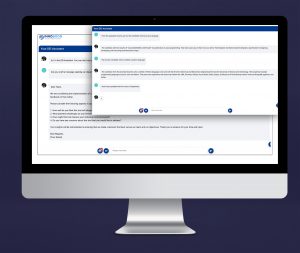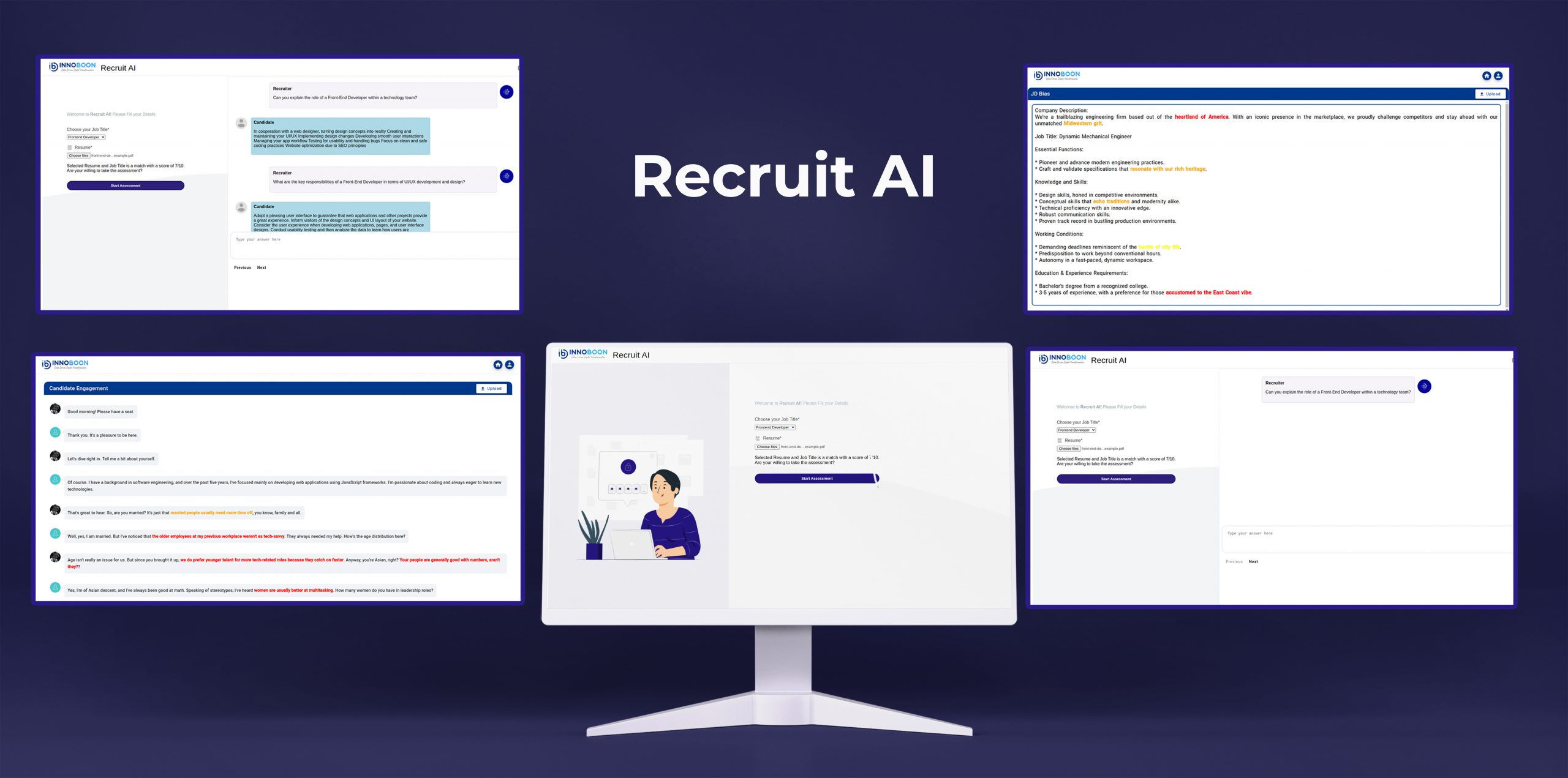Beyond Resumes: How AI is Automating the Recruitment Funnel
AI is becoming a game-changer across sectors in the fast-changing world of technology. One such sector is recruiting, which is changing. Hiring used to be laborious, time-consuming, and biased. AI is revolutionizing recruiting. This article will discuss how AI is changing talent acquisition, from sourcing to onboarding, and its pros and cons.
AI-Powered Candidate Sourcing
Advanced Data Mining Techniques
AI-driven technologies mine unstructured data for insights. NLP algorithms extract keywords, talents, and experience from resumes and online profiles. These algorithms link applicant credentials to job needs by recognizing context and semantics.
Semantic Matching and Contextual Understanding
Due to keyword matching constraints, traditional keyword searches sometimes provide irrelevant results. AI-powered candidate sourcing uses semantic matching algorithms to comprehend candidate context and relevance beyond keywords. AI systems may find people with appropriate talents and experience who may not have utilized precise keywords by examining synonyms, related phrases, and contextual indicators.
Continuous Learning and Optimization
AI systems learn from user input and improve their accuracy and relevance. These algorithms refine search results and suggestions based on historical results using machine learning to adapt to changing recruiting demands. Recruiters may provide input on recommended applicants to help the system learn from successful hiring and improve its suggestions.
Unbiased Candidate Search
AI-driven candidate sourcing ensures a more thorough and impartial search, promoting diversity and inclusion. AI algorithms reduce human biases in recruiting by concentrating purely on credentials and merit. Removing name, gender, and race from applicant profiles prevents unconscious prejudice and assures fair assessment.
Enhancing Candidate Screening and Assessment
Objective Evaluation Criteria
AI-driven screening technologies objectively evaluate applicant credentials using established criteria. These techniques quantify applicant appropriateness by examining skills, credentials, experience, and education. The technology may automatically filter out prospects who don’t fit recruiters’ job needs by setting thresholds and criteria.
Natural Language Processing (NLP) for Resume Analysis
Resume text is analyzed by NLP algorithms to extract important information and insights. From unstructured language, these algorithms can detect important talents, credentials, job titles, and work experience, helping recruiters swiftly analyze applicant profiles. Standardize and organize resume data into organized forms using NLP-based resume parsing tools to compare and analyze applicant credentials.
Cognitive and Personality Assessments
AI-driven evaluation tools evaluate applicants’ eligibility for the post by assessing cognitive and personality traits as well as hard skills and certifications. Psychometric tests analyze cognitive, problem-solving, and personality attributes to better understand applicants’ behavior and job fit. Using verified evaluation methods, recruiters may make better recruiting choices and find applicants that fit company values.
Continuous Performance Monitoring
AI-powered evaluation tools let recruiters track applicants’ success. Tracking applicants’ evaluations helps recruiters discover strengths and weaknesses and provide targeted comments and assistance. Continuous performance monitoring allows data-driven decision-making and provides fair and transparent candidate evaluations.
Personalized Candidate Engagement
Real-time Interaction and Support
AI-powered chatbots and virtual assistants help applicants throughout the recruiting process in real time. These intelligent systems can answer questions, give job opportunity information, and assist applicants. Chatbots improve candidate engagement and satisfaction by providing tailored replies and suggestions using natural language comprehension and sentiment analysis.
Automated Communication and Follow-up
AI-powered communication solutions may automate interview scheduling, follow-up emails, and applicant status updates for recruiters. Automation reduces recruiters’ human work and administrative expense by engaging applicants quickly and consistently. By communicating with candidates often, recruiters may update them on their application and improve candidate experience.
Personalized Content and Recommendations
AI systems customize material and suggestions based on candidate choices, behavior, and interactions. Recruiters may adapt job suggestions, career guidance, and learning materials to applicants’ talents, interests, and career goals. Personalized content improves applicants’ recruitment engagement and employer brand connection. Recruiters may better attract and retain top talent by providing customized material.
Feedback and Performance Analysis
AI-powered engagement tools let recruiters collect applicant input and evaluate performance throughout the recruiting process. Recruitment professionals learn how to improve by asking candidates about their interview, application, and satisfaction experiences. Performance analysis tools assist recruiters enhance communication and candidate experience by tracking candidates’ engagement with recruiting materials.

Predictive Analytics for Talent Forecasting
Data-driven Insights and Forecasting
AI algorithms find talent demand and supply patterns, trends, and correlations in massive data sets. Predictive analytics technologies estimate talent requirements using past recruiting data, market indicators, and macroeconomic variables. These data help companies predict worker demand changes and plan recruiting.
Skills Gap Analysis and Training Needs Assessment
Predictive analytics technologies detect skills gaps in the company. Organizations may identify the skills gap and create focused training and development programs by comparing existing worker capabilities to projected job needs. Predictive analytics also uncover skill trends and market demands, helping companies match personnel development with business goals.
Scenario Planning and Risk Management
AI-powered prediction models allow scenario planning and business performance assessment of multiple workforce situations. Simulations of recruiting methods, workforce compositions, and talent acquisition scenarios help firms assess the risks and benefits of alternative approaches. Predictive analytics solutions assist companies manage personnel shortages, skills gaps, and market changes.
Strategic Workforce Planning and Talent Acquisition
Talent acquisition and strategic personnel planning are guided by predictive analytics. By predicting talent demand by job position, function, or area, firms may create customized recruiting and talent acquisition strategies. Predictive models help companies prioritize recruiting, manage resources, and establish talent pipelines for future labor demands. Strategic personnel planning helps businesses have the proper people to grow and innovate.
Streamlining Interview Processes
Automated Scheduling and Coordination
AI-powered interview systems ease scheduling and coordination for recruiters and applicants. Automatic scheduling technologies use interviewer and applicant availability to recommend interview times based on preferences and restrictions. Recruiters may decrease schedule disputes and delays by eliminating manual coordination, making the interview process easier for all parties.
Video Interviewing and Assessment
Recruiters can quickly perform remote interviews and assessments using AI-powered video interview platforms. These tools examine applicants’ non-verbal and communication abilities using face recognition, sentiment analysis, and behavioral evaluation. Video interviewing helps recruiters make better recruiting choices by revealing applicants’ personalities, communication styles, and cultural fit.
Structured Interviewing and Evaluation
To guarantee interview uniformity and fairness, AI systems give recruiters with standardized interview guidelines and grading criteria. Recruiters may objectively analyze applicants’ skills by standardizing interview questions and evaluation standards. AI-powered interview solutions uncover patterns and trends in applicant replies in interview transcripts and feedback, giving recruiters actionable information to consider.
Candidate Experience and Feedback
AI-powered interview platforms provide feedback and help to candidates. Candidates’ nervousness and confusion are reduced via automated communication methods concerning interview schedules, expectations, and future actions. Candidates may offer their thoughts on the company and interview process after the interview. AI systems evaluate applicant input to improve the candidate experience.
Conclusion
AI is revolutionising recruiting by streamlining procedures, improving applicant experience, and promoting diversity and inclusion. AI-powered tools and data may help companies hire better, plan better, and attract top people. To maximize AI’s advantages in recruiting while assuring fairness, transparency, and accountability, data privacy, algorithmic bias, and human-AI cooperation must be addressed. AI will play a larger role in talent acquisition as technology advances, altering the future of work.
Explore the future of hiring with Innoboon’s AI-driven solutions. Elevate your recruitment process and join us in transforming the landscape of talent acquisition. Contact our team today to discover how we can help you harness the power of AI for a more efficient and effective hiring strategy.



